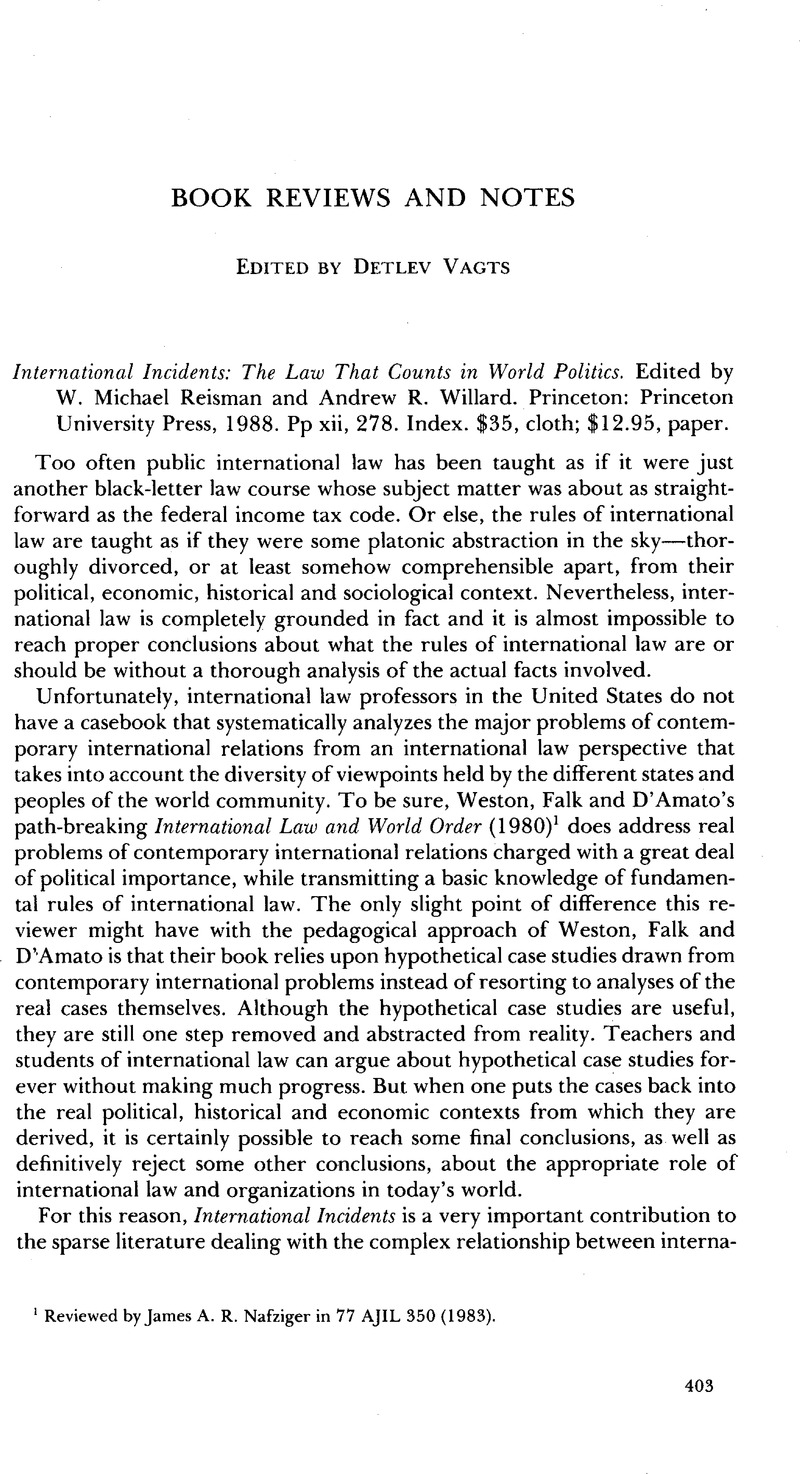No CrossRef data available.
Published online by Cambridge University Press: 27 February 2017

1 Reviewed by James A. R. Nafziger in 77 AJIL 350 (1983).
2 See, e.g., M. Kaplan & N. Katzenbach, The Political Foundations of International Law (1961); W. Coplin, The Functions of International Law (1966); C. De Visscher, Theory and Reality in Public International Law (rev. ed. 1968); International Law and Political Crisis (L. Scheinman & D. Wilkinson eds. 1968); R. Fisher, International Conflict for Beginners (1969); International Law and the Social Sciences (W. Gould & M. Barkun eds. 1970); The Relevance of International Law (K. Deutsch & S. Hoffmann eds. 1971); R. Fisher, Improving Compliance With International Law (1981); F. Boyle, World Politics and International Law (1985); Enhancing Order (and Law) in Future International Crises, 70 ASIL Proc. 123 (1976) (panel discus sion by R. Bowie, T. Farer, R. Fisher and C. Parry); Rubin, Order and Chaos: The Role of International Law in Foreign Policy, 77 Mich. L. Rev. 336 (1979).
3 See R. Bowie, Suez 1956 (1974); A. Chayes, The Cuban Missile Crisis (1974); T. Ehrlich, Cyprus 1958–1967 (1974); G. Abi-Saab, The United Nations Operation in the Congo 1960–64 (1978); R. Fisher, Points of Choice (1978).
4 See Falk, The Validity of the Incidents Genre, 12 Yale J. Int'l L. 376 (1987); Bowett, International Incidents: New Genre or New Delusion?, id. at 386.
5 The Complete Writings of Thucydides: The Peloponnesian War 331 (Modern Library College ed. 1951) (emphasis added):
Athenians.—For ourselves, we shall not trouble you with specious pretences—either of how we have a right to our empire because we overthrew the Mede, or are now attacking you because of wrong that you have done us—and make a long speech which would not be believed; and in return we hope that you, instead of thinking to influence us by saying that you did not join the Lacedaemonians, although their colonists, or that you have done us no wrong, will aim at what is feasible, holding in view the real sentiments of us both since you know as well as we do that right, as the world goes is only in question between equals in power, while the strong do what they can and the weak suffer what they must.
See Boyle, The Law of Power Politics, 1980 U. Ill. L. F. 901, 907–15.
6 H. Morgenthau, Politics Among Nations (1948).